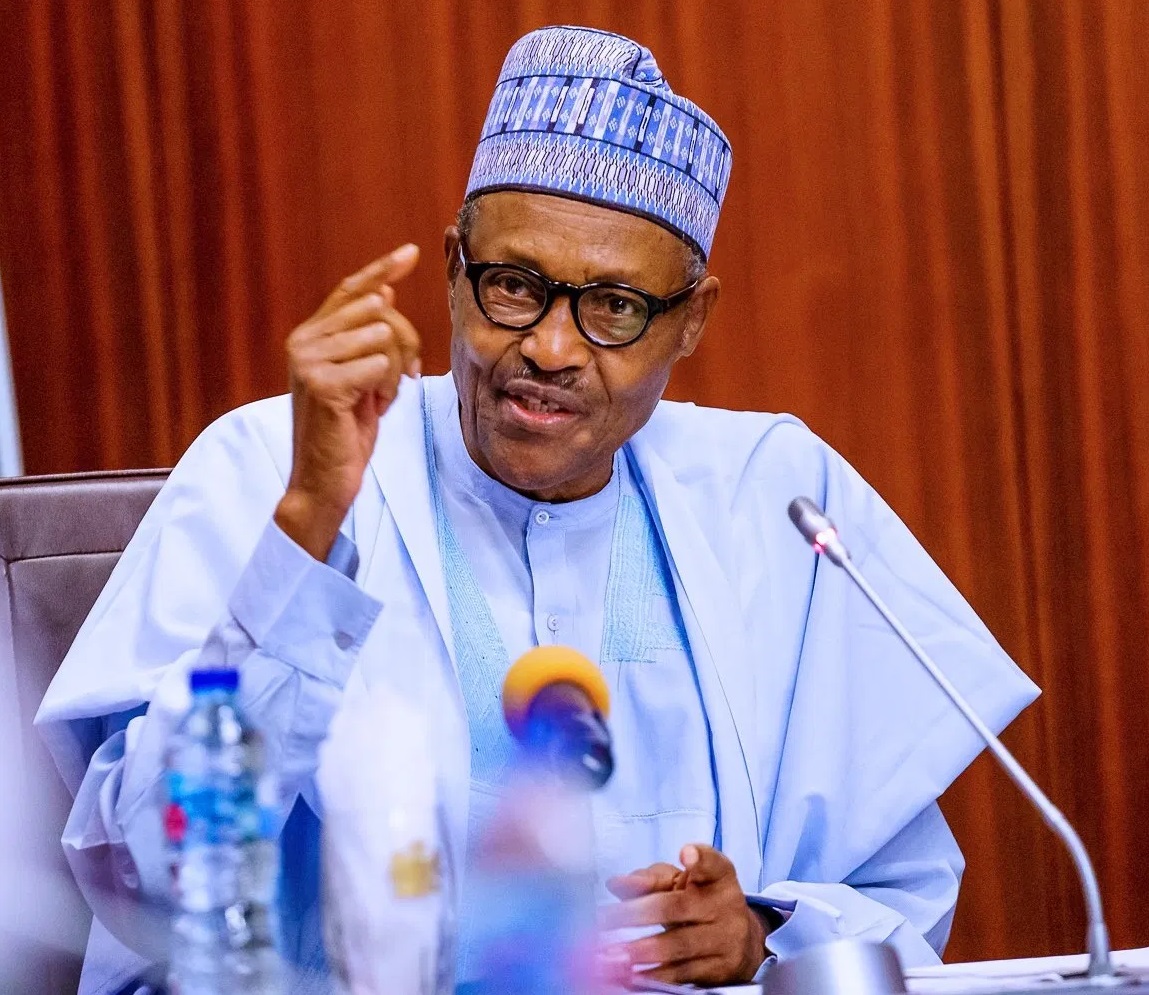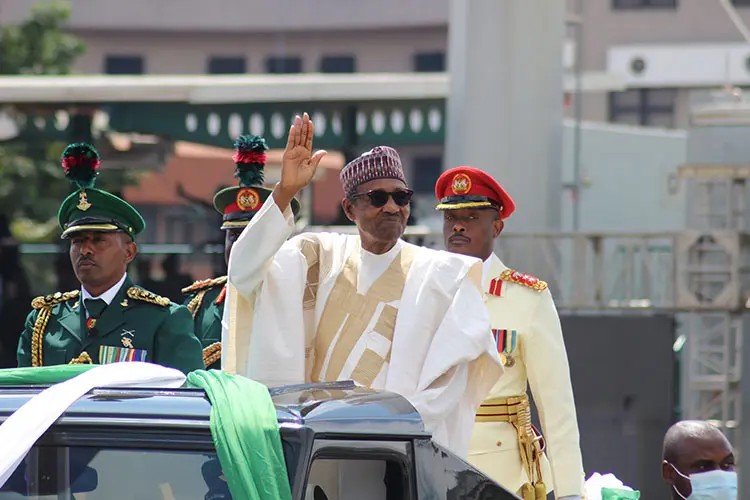Kukah Centre Report: Nigeria’s political parties running on sinking sand
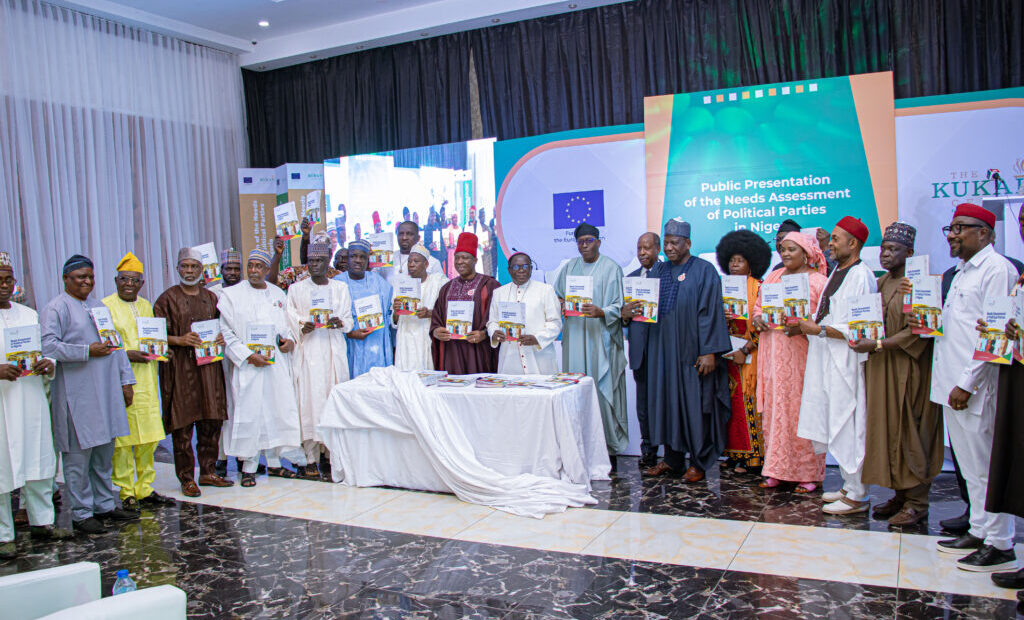
Key Points:
-
Why smaller political parties lose those elected into parliament to bigger parties
-
Most party members are ignorant of the philosophies, aims and objectives of their political parties
-
Most parties do not have a database of their members
-
Most parties do not have clear-cut strategies for attracting more members
-
Staff members of most political parties barely undergo capacity-building events
-
There is the lack of transparency and accountability in most of the political parties
By Theophilus Abbah
The Labour Party ravaged the political landscape in Nigeria in 2023 like a wild tsunami, sweeping away many formidable structures, iroko trees, articulated vehicles, and the assets of established political parties’ heavy weights. Like a spark of brilliance, the movement erected around Peter Obi, its presidential candidate and former Governor of Anambra State, defied political logic to ferry unexpected candidates into top electoral positions, putting down many confident politicians, and shaking the foundation of the ruling All Progressives Congress (APC) and a former ruling party, the Peoples Democratic Party (PDP).
Less than one-and-a-half years after this out-of-the-ordinary penetration of the formidable political fence, the Labour Party is fading away like a thick cloud giving way to the brightness of the sun. Evidence of its collapse could be traced to Enugu State. In 2023, Kevin Chukwu, a barely unknown politician dislodged former Governor Chimaroke Nnamani of the Peoples Democratic Party (PDP) from the Enugu East Senatorial Seat in the National Assembly by barely flying the flag of the Labour Party. Now, instead of deepening its roots in the South-East state, Peter Obi’s party is being routed out, not by instalment, but absolutely. In March 2024, six Enugu State House of Assembly members who flew into the legislative chamber on the wings of the Labour, abandoned the party to rather pitch their tents with the ruling PDP.
The Labour Party’s instability in a South-East state which is supposed to be the stronghold and launchpad of the party to other geopolitical zones demonstrates the quality of ground on which political parties are built. Rather than standing on solid rock, they are on quicksand and quickly collapse into waste when faced with even a mild whirlwind from the opposition. The outcome of a research carried out by The Kukah Centre showed that most political parties go to sleep immediately after elections, and hardly engage with those elected into the legislature to rub minds on what to do to make the parties more robust and grab more political grounds. Left like a flock of sheep without a shepherd, such elected officials migrate to bigger political parties, mainly the ruling parties, to give them a sense of belonging.
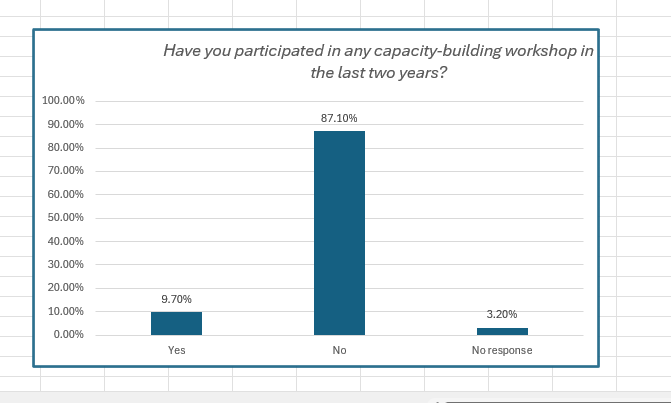
The research presented in December 2023 formed the subject of a conference on July 16, 2024, titled High-Level Meeting with National Executives of Political Parties and other Stakeholders. Dr Abdullahi Ganduje, the National Chairman of the All Progressives Congress (APC) and former Governor of Kano State attended the Kukah Centre event. The Acting Chairman of the Peoples Democratic Party (PDP), Alhaji Umar Damagun, and the Independent National Electoral Commission (INEC) Chairman, Professor Yakubu Mahmoud, were represented by top-ranking officers.
The Chairman of the Inter-Party Advisory Committee (IPAC), Alhaji Yusuf Dantalle, was not only present; he was on a panel discussion that dissected the Supreme Court judgement and other contemporary political issues. A renowned politician and former National Chairman of the Peoples Democratic Party (PDP), Chief Audu Ogbeh, prioritized the meeting over and above other engagements. In short, it was clear to all that, for the political class, the event ranked high among other political events of that day. Most seats, draped in white, were occupied by politicians who represented ruling and struggling political parties, Civil Society Organizations (CSOs) that operate in the political space, and journalists.
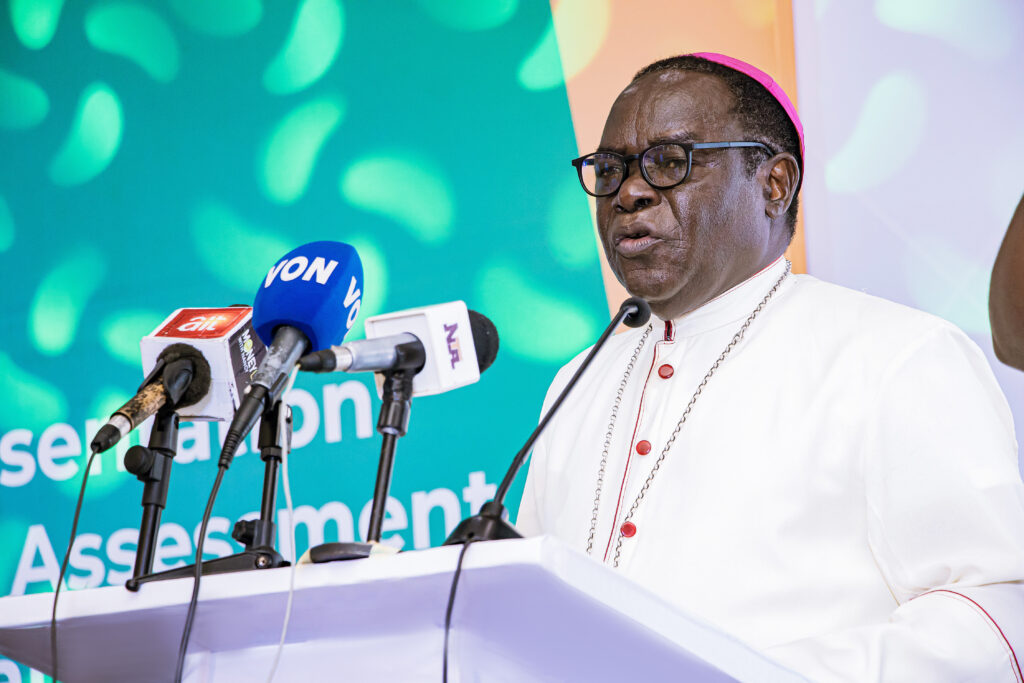
Bishop Matthew Kukah, founder of The Kukah Centre
The thrust of the event was the presentation of the Needs Assessment of the country’s political parties, a product of a research endeavour carried out by The Kukah Centre. Expectedly, the research project was funded by the European Union (EU). The 52-page document came out of a survey whose respondents were members of political parties and other stakeholders. The findings of the research, under the sub-section, Legislative Profile, showed that, apart from the ruling APC and, perhaps, the PDP, there are no requirements for legislators to report back to the party and no formal process of using them to influence the legislative agenda at both state and national levels.
Some of the respondents in the survey stated that legislators from smaller parties hardly play the opposition function expected of them, nor are they accountable to the party that provided the platform for them to go to the legislature. The situation is put succinctly in the report thus: “A predominant challenge reported by parties is the recurring challenge of defection of members after being elected on the party platform. This is despite the constitutional provisions restricting cross-carpeting to situations with an internal crisis within the party in Section 68(1)(g) of the Constitution.”
Legislators from smaller parties hardly play the opposition function expected of them
Several other findings show why political parties cannot control those who win elections in the Legislative arm of government. First, many members of political parties interviewed barely have a vague knowledge of the philosophy of their political parties, as they take the parties’ aims and objectives for party philosophy. But for the respondents who claimed that their parties had philosophies could not articulate what those philosophies were. Some parties that brandish philosophies include the NNPP which claims Democratic Liberalism; PDP’s Social Conservatism and Economic Liberalism; PRP’s Socialism; and Accord Party’s Welfarism. Members of these parties interviewed could not associate their parties’ policies with their so-called philosophies. They were ignorant of the persuasions of their parties, perhaps, because the founders of Nigeria’s political parties rarely gave a thought to any political philosophy. It further demonstrates that political parties rarely engaged or educated their members on the vision and missions of their parties.
One common thread that was characteristic of the party members interviewed is that they have no evidence to support their assumptions. For instance, when asked if their parties had sufficient offices across the country, 52 per cent said ‘Yes’, but further probe showed that most small parties had no offices in many states, so their members were left to their fate until the next elections. They know their parties have internal processes, but “several interviewees could not determine if the party’s policy-making process is inclusive involving state and local levels of the party, except, perhaps, in larger political parties.
Also, women and youths are not consulted in decision-making in most political parties, especially where party chairmen, at state and local government levels, impose decisions, including candidates to stand for elections, on other party members. It is also apparent from the report that there are structures in place on how to control parties’ resources, because there are financial secretaries and treasurers, but respondents still felt that “the National Chairmen and their cohorts hijack party funds with little scrutiny or oversight. However, decisions regarding finances are presented to the National Working Committees for ratification.”

Source: The Kukah Centre
In terms of communication between party hierarchy and members, the port says this is done occasionally, but grossly “inadequate and infrequent.” For strategic plans, most of those interviewed thought of it as only how to win elections and establish a government. Outside this, members were ignorant about other strategies like those being put in place to garner more members into the party, other than canvassing for votes during elections. This affects the participation of party loyalists in party activities when there are no elections.
For the two major political parties, what keep members active are off-season elections, or else they are usually idle until the next general elections. From the apparent lack of strategy by most parties, it is not difficult to know why many of them fail to expand or even consolidate their political bases. In other climes, smaller parties eat into the membership of bigger political parties by engaging the people even when there are no elections.
The foregoing accounts for why many political parties lack the database of their members or the profile of their supporters. The research report says “Some interviewees indicate that membership records are not always properly kept or comprehensive. On occasions, the identity of the people in the register cannot be ascertained, and some names are duplicated or fabricated. Some interviewees attributed low voter turnout to the lack of integrity of record keeping by both INEC and political parties, among other reasons.”
The issue of capacity building for members and staff of political parties did not escape the researchers who found out that though parties conducted workshops for members occasionally, the staff of most parties claimed that they had not benefitted from workshops. In the survey, 38.70 per cent of the respondents claimed to have benefitted from capacity-building workshops, but as many as 51.60 per cent claimed they didn’t undergo any such training, though 9.70 per cent failed to respond to the question, a clear indication that they may not have been exposed to any capacity building programme.
Many political parties lack the database of their members or the profile of their supporters
But the picture came clearer when the question, ‘Have you participated in any capacity-building workshop in the past two years?’ was posed to the interviewees. The answer was a resounding ‘No’, as 87.10 per cent of the staff of political parties interviewed claimed they had not benefitted from any capacity-building workshop. These respondents would want to be trained in areas like “party administration, financial management, professionalization of parties, fundraising and campaigns, etc.” Without being exposed to such training, most staff carried out their jobs as mere routines, without a clear understanding of the relevance of their jobs to the overall objectives of the party.
Other findings by the researchers include the fact that parties do not have reliable fundraising mechanisms, apart from depending on support from the government, if they are in power, or relying on some moneybags who would fund the party and call the shot on almost all issues. Also, there are hardly any deliberate effort to groom candidates who are put forward for elections; rather party leaders head-hunt or give tickets to the highest bidders, whether or not they understand or align with the party’s philosophy.
There are hardly any deliberate effort to groom candidates who are put forward for elections
The 51-page report has several recommendations generated from the responses from those interviewed and best practices in other parts of the world. For instance, in the aspect of political party management, the researchers recommend that “Political parties should promote accountability and adopt a corporate governance approach to managing their affairs. Specifically, parties could adopt the modus operandi of NGOs concerning accountability. With the appropriate management and accounting systems, parties can better manage their finances, run a lean operation, and develop targets and key performance indicators (KPIs). Without such a strong result-oriented model, political parties may likely continue to rely on external funding, which opens them to being hijacked by powerful and wealthy individuals.”
Based on the findings, the researchers have developed toolkits that address the needs of political parties in the country. Parties that yearn to endure on the political scene for a long time would need to take a critical look at the document and apply aspects that are relevant to their growth.
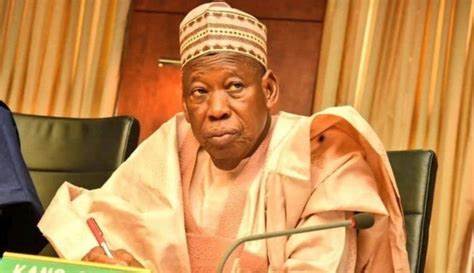
Dr Abdullahi Ganduje, the National Chairman of the All Progressives Congress (APC) and former Governor of Kano State
Also Read: Data shows Nigerian youths could determine outcome 2023 elections – The Insight
The Insight Report
Nigeria Coverage

